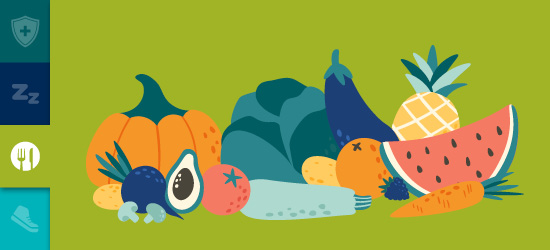
Archived Story: This article is part of our newsletter archives. It has
been preserved for reference, but the information may no longer be current.
No matter your shape or size, your body is beautiful. It’s okay if you’ve been eating more comfort food than usual, but getting the right nutrients makes it easier for your body to support you.
Every little bit of healthy eating helps your body fight disease more effectively. Read on to find out why some foods help your body fight invaders and others don’t.
Foods that help your immune system
- Try new veggies and fruits. Specific veggies and fruits that reduce inflammation are apples, berries, tomatoes, celery and onions.
- Add fermented foods. Fermented foods have good bacteria that helps your immune system. Sauerkraut, yogurt and kombucha are all great sources of these mighty microbes.
- Drink more water. Water helps your body naturally remove toxins and carries oxygen to your entire body. You don’t have to drink eight glasses of water a day to notice a difference in your health. A little extra hydration every day helps a lot.
- Get some omega-3s. When creating new defenders, your body uses omega-3s as essential “building blocks” in cell walls. Salmon, walnuts and chia seeds have omega-3 fatty acids, which are perfect for construction.
Foods to avoid to feel your best
- Limit processed foods. Salty, processed foods can limit your body’s ability to fight infectious diseases effectively. No need to cut out everything unhealthy, just try scaling back a little.
- Minimize sugar. Sugar is okay in moderation, but too much sugar may weaken your immune system.
- Decrease high-fat foods. Your gut doesn’t like a lot of red meats or fatty foods. The mighty microbes in your gut prefer leafy greens, fiber and other nutrient-dense foods that are easier to break down.
See if there are ways to mix these invader-fighting foods into your lifestyle. A great first step would be adding a few new foods to your shopping list.
For more nutrition guidance like this, schedule a telehealth visit with the University Health Center registered dietitian. Student fees cover the cost of your first nutrition counseling visit. To schedule, call 402.472.5000.
More details at: https://health.unl.edu